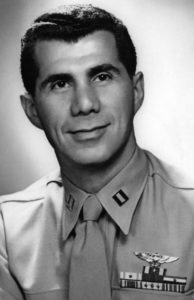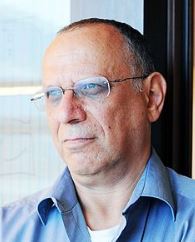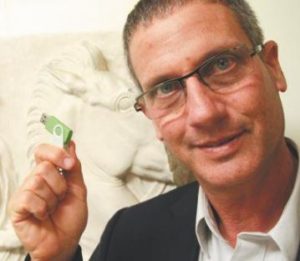The Man Who Saved Tel-Aviv
Layos Lenovitz (1921-2015) was born in a rural Hungarian village, the son of farmers. While still a child, his family fled to America to escape persecution. They settled in Pennsylvania, and survived by selling home-made noodles. Growing up, Lenovitz was commonly a victim of anti-Semitic attacks, so he took up bodybuilding to protect himself. This led him to join the Marines at 17. Now going by the name Louis Lenart, he ended up in flight school and became a fighter pilot. During World War II, he served in the Pacific, and participated in a number of key battles, including the Battle of Okinawa – one of the war’s largest. Upon returning home (with the rank of Captain), Lenart learned that many of his relatives, including his grandmother, perished in the Holocaust. In response, he moved to Israel and volunteered with the Sherut Avir, the “air force” of the Haganah – which had no military planes at the time. Lenart helped to secretly smuggle four S-199 fighter planes from Czechoslovakia. Following its declaration of independence, Israel’s Arab neighbours immediately invaded. By the end of May 1948, the Egyptians were nearing Tel-Aviv with a force of 10,000. Lenart was called up to command Israel’s only four fighter planes to stop the Egyptian advance – the very first mission of the newly-created Israeli Air Force. The Egyptians thought Israel had no air force, and were shocked when they were being attacked from above. Thinking that Lenart’s four planes were just the first small foray of a larger attack, the Egyptians retreated in fear. Israel’s most populous city was spared from what could have been a devastating battle, and Lenart was nicknamed “the man who saved Tel-Aviv”. Following the war, Lenart played an important role in Operation Ezra and Nehemiah, which airlifted over 120,000 Iraqi Jewish refugees to safety in Israel. Outside of the military, Lenart was a pilot for El Al. Later in life, he moved to Los Angeles and helped to produce six Hollywood films while at the same time working as the general manager of the San Diego Clippers basketball team (before the team moved to LA). Lenart retired in Israel, where he spent the last years of his life. His story was featured in Nancy Spielberg’s award-winning 2014 film Above and Beyond, and the 2015 A Wing and a Prayer.
Words of the Week
It was the most important moment of my life, and I was born to be there at that precise moment in history… I survived World War II so I could lead this mission.
– Lou Lenart, on his mission to save Tel-Aviv during the Independence War



